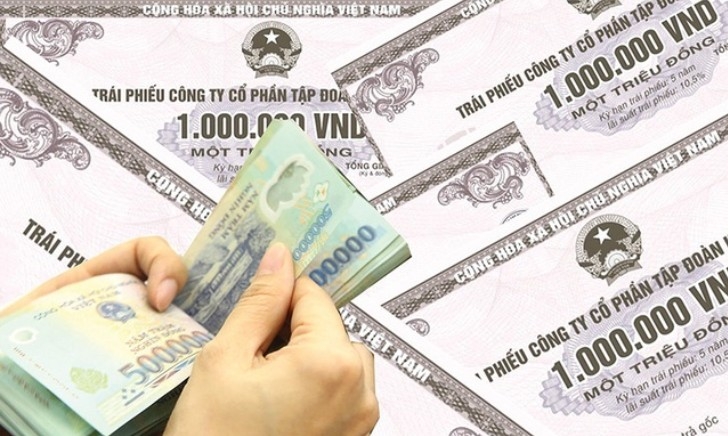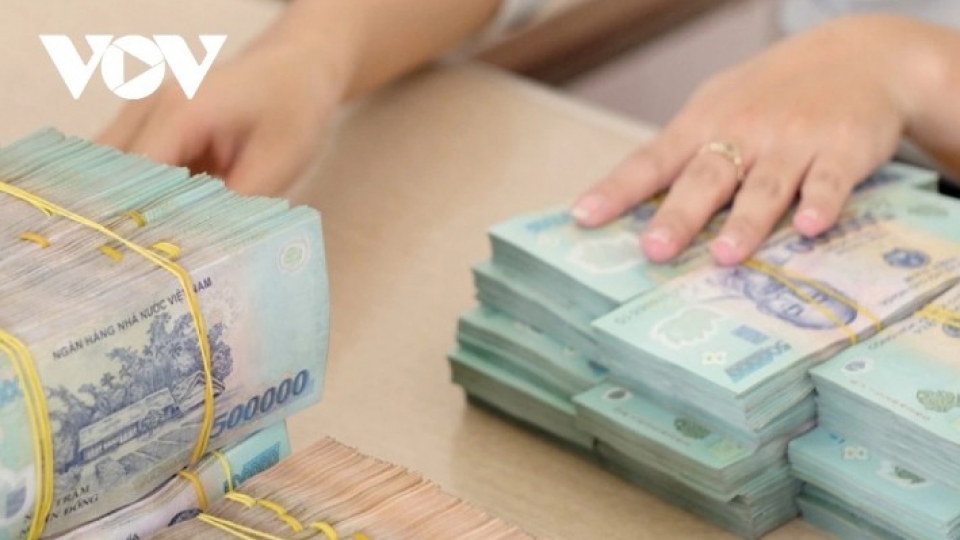Credit ratings enhance transparency and investor confidence in Vietnam
VOV.VN - Over more than a decade, credit rating activities have played a crucial role in enhancing transparency in the capital market, thereby promoting the safe, sustainable, and sophisticated development of this market.

Alongside the growth of Vietnam’s capital market and corporate bond market, credit rating services were formally established in 2014 with the introduction of Decree No. 88.
In 2024, bonds issued by 54 organizations with credit ratings totaled VND 216 trillion, accounting for 46% of the year’s total issuance value. Over the past ten months of 2025, the value of rated bond issuance reached more than VND 287 trillion, double the figure for the same period in 2024.
As of the end of October, the total outstanding bonds of rated issuers hit nearly VND 461 trillion, representing about 34% of the corporate bond market’s total outstanding debt. This illustrates the strong demand in Vietnam’s capital market for high and sustainable economic growth, while the potential for credit rating services remains substantial.
Notably, some major Vietnamese companies have proactively sought ratings from international agencies to attract foreign capital, not merely domestic funding. Thus, corporate credit ratings have become a key lever to elevate Vietnamese bonds, warranting greater attention moving forward.
Pham Thi Thanh Tam, Deputy Director of the Department of Financial Institutions under the Ministry of Finance emphasized, “This activity brings multifaceted benefits. For investors, credit rating results provide assessments of issuers’ financial capacity and debt repayment ability, offering an effective tool for evaluating and analyzing risk before making investment decisions. For companies, credit ratings encourage issuers to increase operational efficiency and financial transparency. Achieving a high rating also allows companies to reduce their capital-raising costs.”
In recent years, the Ministry of Finance has advised the government to submit amendments to the Securities Law and Enterprise Law to strengthen the responsibilities of service providers and increase requirements for bonds offered to retail investors, thus boosting a more transparent market. As a result, credit ratings for public corporate bond issuance have become mandatory rather than merely recommended.
Le Minh Hung, representative of the Securities Offering Management Board under the State Securities Commission said, “Under the newly issued Decree 245, bond offerings must be rated, meaning public issuance requires credit ratings, except for credit institutions.”
Clearly, alongside Vietnam’s economic and capital market development, the corporate bond market has made positive strides, especially after the Vietnamese stock market was upgraded from frontier to secondary emerging market status by an international rating agency. In this context, the number of companies voluntarily obtaining credit ratings has increased. To date, more than 140 companies in real estate, securities, and energy sectors have been rated when offering bonds.
Thi Thu Hue, Head of Commercial at FiinRatings- Vietnam Credit Rating Agency, shared: “Issuers use credit ratings as a tool to optimize financing costs, including interest rates and terms, expand the investor base, and diversify capital sources beyond traditional loans. Besides green bonds, applying international or domestic ratings completes bond documentation, making offerings more professional and transparent.”
Accordingly, credit rating results help companies refine financial planning and optimize mobilized capital. Particularly, companies that go beyond domestic compliance to adopt international rating standards under best practices can access international capital flows, especially green financing aligned with new development trends. In this process, credit ratings also serve as an important instrument for improving corporate governance and long-term sustainable growth.
Maria Joao Pateguana, Unit Head, Private Sector Development at Asian Development Bank (ADB), noted that Vietnam’s development partners consistently support enhancing market transparency.
The ADB pledges to help Vietnam build a transparent, reliable, and investor-friendly credit rating ecosystem. We look forward to continued cooperation with the Ministry of Finance and relevant stakeholders to further promote good practices, strengthen market confidence, and open new opportunities for sustainable growth.
Thus, with the completion of a legal framework to support credit rating market development in Vietnam, the government has clearly signaled encouragement for a transparent and healthy market. In this context, establishing a culture of credit ratings will become a reliable reference channel for domestic and international investors.




